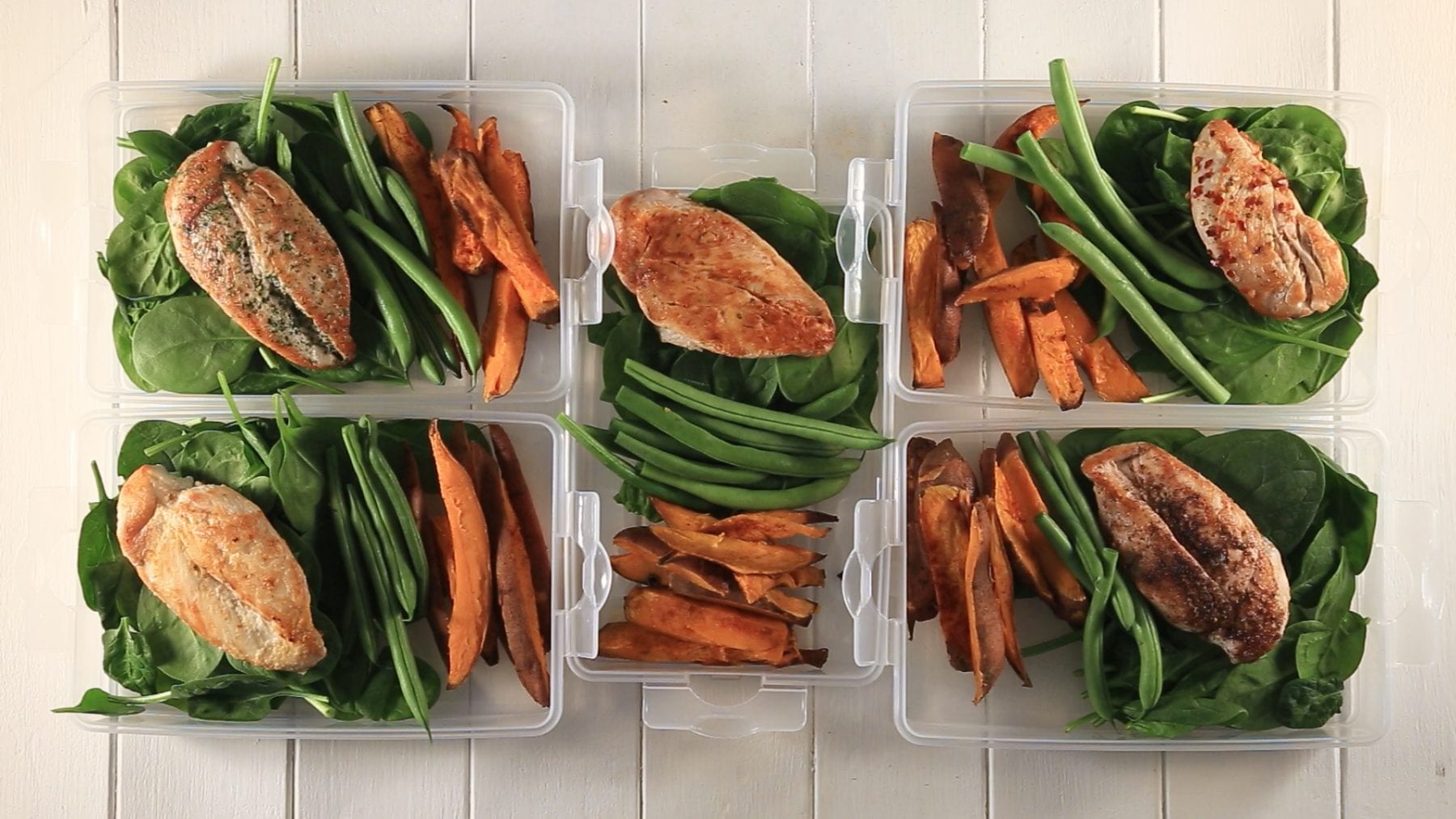
Beyond Protein: Essential Nutrients Every Bodybuilder Should Include
TABLE OF CONTENTS
Bodybuilding is not just about lifting weights; it’s a fusion of intense training and proper nutrition. A well-structured bodybuilding diet is crucial for gaining muscle, reducing fat, and achieving peak physical condition. In this article, we will delve into the key components of a bodybuilding diet, meal planning, and some common dietary misconceptions.
Key Components of a Bodybuilding Diet
1. Protein
Protein is the cornerstone of a bodybuilding diet. It plays a pivotal role in muscle repair and growth. Bodybuilders should aim for a higher protein intake than the average person, typically around 1.2 to 2.0 grams of protein per kilogram of body weight.
- Sources of Protein:
- Chicken breast
- Turkey
- Lean beef
- Fish (especially tuna and salmon)
- Dairy products (like Greek yogurt and cottage cheese)
- Legumes (beans, lentils)
- Protein supplements (whey, casein, plant-based proteins)
2. Carbohydrates
Carbohydrates are essential for providing the energy required for intense workouts. While low-carb diets may be trendy, bodybuilders need sufficient carbs to fuel their performance and recovery.
- Sources of Carbohydrates:
- Whole grains (brown rice, quinoa, oats)
- Fruits (bananas, berries, apples)
- Vegetables (particularly starchy ones like sweet potatoes)
- Legumes
3. Fats
Healthy fats are vital for hormone production, joint health, and overall well-being. Including a moderate amount of healthy fats in the diet can support muscle recovery and enhance performance.
- Sources of Healthy Fats:
- Avocados
- Nuts and seeds (almonds, walnuts, chia seeds)
- Olive oil and coconut oil
- Fatty fish (like salmon and mackerel)
Meal Planning for Bodybuilding
Effective meal planning involves calculating your macro and micronutrient needs based on your body weight, workout intensity, and goals. Here’s how to structure a basic meal plan:
1. Determine Your Caloric Needs
A good starting point is the Total Daily Energy Expenditure (TDEE), which considers your basal metabolic rate (BMR) plus your activity level. Bodybuilders typically consume 300–500 calories more than their TDEE to promote muscle gain.
2. Distributing Macros
A common macro distribution for bodybuilding diets can be:
- Protein: 25-30%
- Carbohydrates: 45-55%
- Fats: 20-30%
3. Sample Meal Plan
Here’s an example of a daily meal plan:
- Breakfast: Oatmeal cooked with milk, topped with almonds and berries, and a protein shake.
- Mid-Morning Snack: Greek yogurt with honey and walnuts.
- Lunch: Grilled chicken breast with brown rice and steamed broccoli.
- Afternoon Snack: A smoothie with banana, spinach, protein powder, and almond milk.
- Dinner: Baked salmon with quinoa and asparagus.
- Evening Snack: Cottage cheese with pineapple.
Common Dietary Misconceptions
- 1. You Need Huge Amounts of Protein: While protein intake is important, excessively high amounts are not necessary and can be counterproductive.
- 2. Carbs are Bad for You: Carbohydrates are essential for energy, particularly for high-intensity workouts.
- 3. Fats Make You Fat: Healthy fats are essential and can aid in muscle recovery and overall satiety.
Supplementation in Bodybuilding
While whole foods should be the foundation of any diet, supplements can help fill in the gaps:
- Protein Powders: Whey, casein, or plant-based proteins can assist in meeting daily protein goals.
- Creatine: Enhances performance and muscle recovery.
- Branched-Chain Amino Acids (BCAAs): Can help with muscle recovery.
- Fish Oil: Supports joint health and contains omega-3 fatty acids.
Conclusion
Embarking on a bodybuilding journey requires a balanced diet tailored to support muscle growth, recovery, and overall health. By focusing on the right sources of protein, carbohydrates, and fats, and planning your meals effectively, you can optimize your performance and results. Always remember to consult with a healthcare professional or a dietitian before making significant dietary changes, particularly when considering supplements or specialized diets.
FAQs
- Is it necessary to take supplements while bodybuilding?
No, supplements should not replace whole foods but can be useful for filling in gaps in nutrition.
- How long does it take to see results from a bodybuilding diet?
Results vary depending on several factors, including genetics, dedication, and workout routine, but many can see initial results within 4-6 weeks.
- Can I lose fat while gaining muscle?
Yes, it is possible to achieve muscle gain and fat loss simultaneously with careful diet and workout planning.
- What role do steroids play in bodybuilding?
While some bodybuilders opt for anabolic steroids to enhance performance and muscle growth, they carry significant health risks and should be approached with caution. For more information, feel free to visit this resource.
- Where can I find more information about bodybuilding diets?
There are numerous blogs and resources available, including ones like Menagerie Media and Steroid.com.
- How do I become a body piercer?
If you’re interested in a career in body piercing, there are training programs available. Check this guide for more information.
- Can I listen to any podcasts related to bodybuilding?
Yes! Consider checking out Hanna Houston’s podcast for tips and insights on bodybuilding and fitness.
Bodybuilding diet is a critical component of any successful bodybuilding program. Unlike a standard diet, which may focus on general health and wellbeing, a bodybuilding diet is specifically designed to fuel muscle growth, enhance recovery, and support performance. This type of diet prioritizes macronutrients—proteins, carbohydrates, and fats—in ratios tailored to individual goals, whether that’s bulking up for muscle gain or cutting back for fat loss. Understanding these macronutrients and their roles in the body allows bodybuilders to maximize their nutritional intake and, consequently, their physical results.
Protein is often regarded as the cornerstone of a bodybuilder’s diet. It plays a vital role in the repair and growth of muscle tissue after intense workouts. Bodybuilders aim for a higher protein intake than the average person, typically around 1.2 to 2.2 grams of protein per kilogram of body weight. This can be achieved through various protein sources, including lean meats like chicken and turkey, fish, eggs, dairy products, beans, lentils, and plant-based proteins such as tempeh or tofu. Many bodybuilders also use whey or casein protein supplements to meet their daily protein needs conveniently, emphasizing the importance of spreading protein intake throughout the day for optimal muscle protein synthesis.
Carbohydrates are another essential macronutrient in a bodybuilding diet, as they provide the energy needed for intense training sessions. Carbs are particularly important for replenishing glycogen stores in the muscles and liver, which can be depleted during rigorous workouts. Bodybuilders often consume complex carbohydrates, such as brown rice, quinoa, sweet potatoes, and oats, to ensure a steady energy supply. The timing of carbohydrate intake is also crucial; many bodybuilders prioritize consuming carbohydrates surrounding training sessions, allowing for improved performance and recovery. Moreover, dietary fiber from fruits and vegetables is essential for digestive health and can aid in maintaining overall well-being.
Fats, often misunderstood, are also an important part of a bodybuilding diet. Healthy fats, such as those found in avocados, nuts, seeds, and olive oil, provide a dense source of energy, support hormone production, and are vital for nutrient absorption. While fats often take a backseat to proteins and carbohydrates in a bodybuilding diet, they play a crucial role in overall hormonal balance, particularly testosterone levels, which can impact muscle growth. A well-rounded bodybuilding diet incorporates healthy fats in moderation, ensuring that they do not lead to excessive calorie intake while still supporting overall health.
Lastly, hydration should not be overlooked when discussing bodybuilding diets. Adequate water intake is essential for optimal performance, recovery, and overall health. Dehydration can impede muscle contractions and performance during workouts, while also hindering recovery post-exercise. Bodybuilders are encouraged to drink water consistently throughout the day, and they may also use electrolyte-replenishing drinks around training times, especially when engaging in prolonged or intense exercise sessions. In conclusion, a thoughtful and strategic bodybuilding diet that balances protein, carbohydrates, fats, and hydration is paramount for anyone looking to enhance their physique and performance in the sport of bodybuilding.






